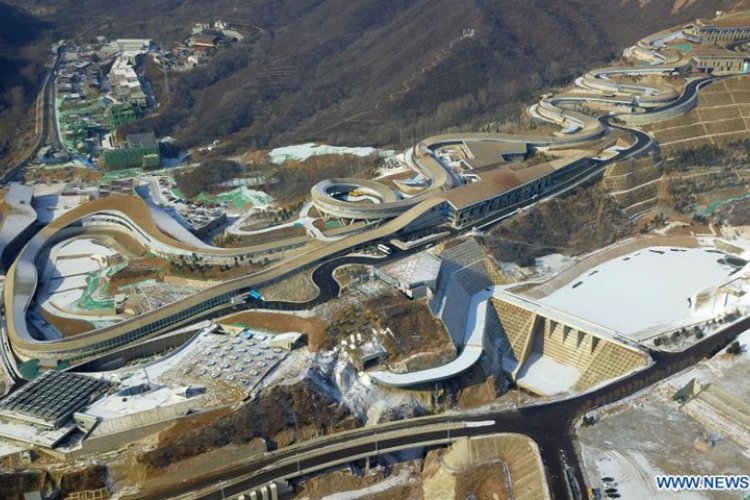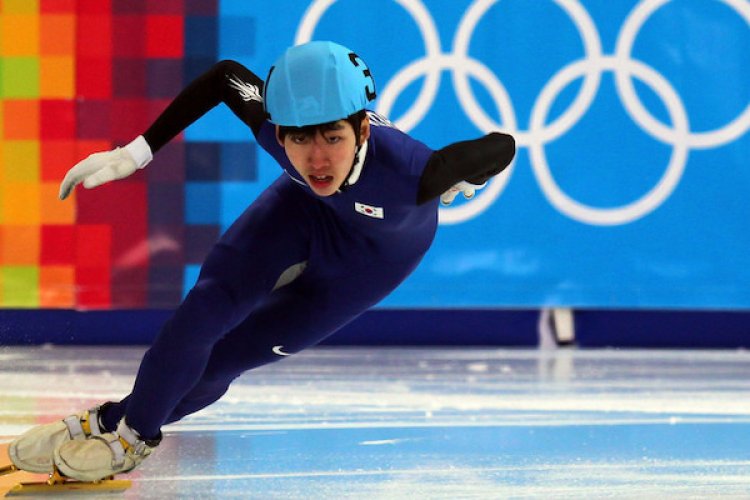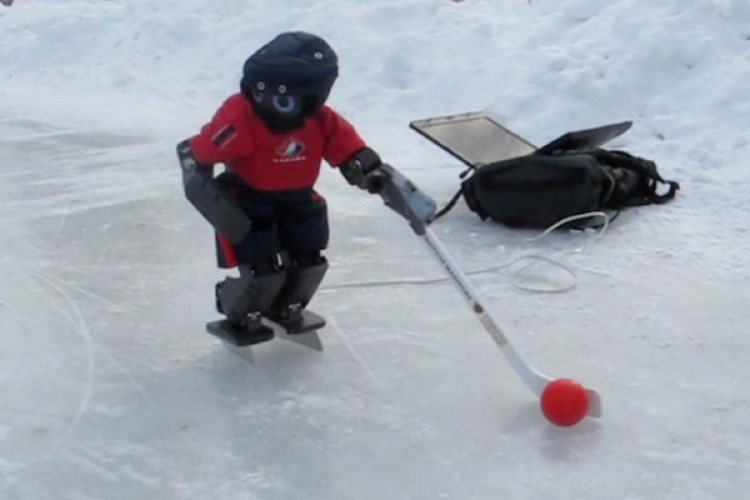OlymPicks: A Q&A With the Chinese Billionaire That Brought Hockey to the Mainland
OlymPicks is an ongoing blog series whereby we highlight news, gossip, and developments regarding the buildup to Beijing's 2022 Winter Olympics.
Long before Zhou Yunjie became a billionaire businessman in China’s packaging industry, long before he spearheaded the deals that brought about the National Hockey League’s first big push into mainland China, and long before he met his hero, star player Bobby Orr, he was a scrappy young goalie with enough heart and stamina to stay in the game despite a throbbing injury.
It was 1979 and 17-year-old Zhou (pictured in the lead image above), a goalie for the Beijing junior team, had been struck so hard enough by the puck shot by one of his adversaries on the Jilin junior team that his hand swelled to the point that he couldn’t get his glove back on. “I easily could have sat it out, because I was injured. But I couldn’t bear to let my 20 teammates down,” says Zhou ahead of the premier NHL exhibition game between the Los Angeles Kings and the Vancouver Canucks today at 3pm at the Wukesong Arena. “So the doctor used scissors to slice my skin, drain it, and bandage it back up. After that, I went back in the game. That’s the spirit of hockey – responsibility, persistence, and the will to keep fighting.
Zhou showed similar determination in brokering the deals that brought his favorite sport to his homeland, a process that took years and seemed all but unfeasible, given China’s overall indifference to hockey when compared to a myriad of other sports. Below, Zhou – who made his fortune with his company ORG Packaging, which Canada’s Globe and Mail newspaper described as a “metal-can-making giant … that will be the presenting partner of the NHL China Games 2017” after dubbing Zhou as “a magnate of beer kegs and Red Bull” – tells the Beijinger more about bringing hockey to China.
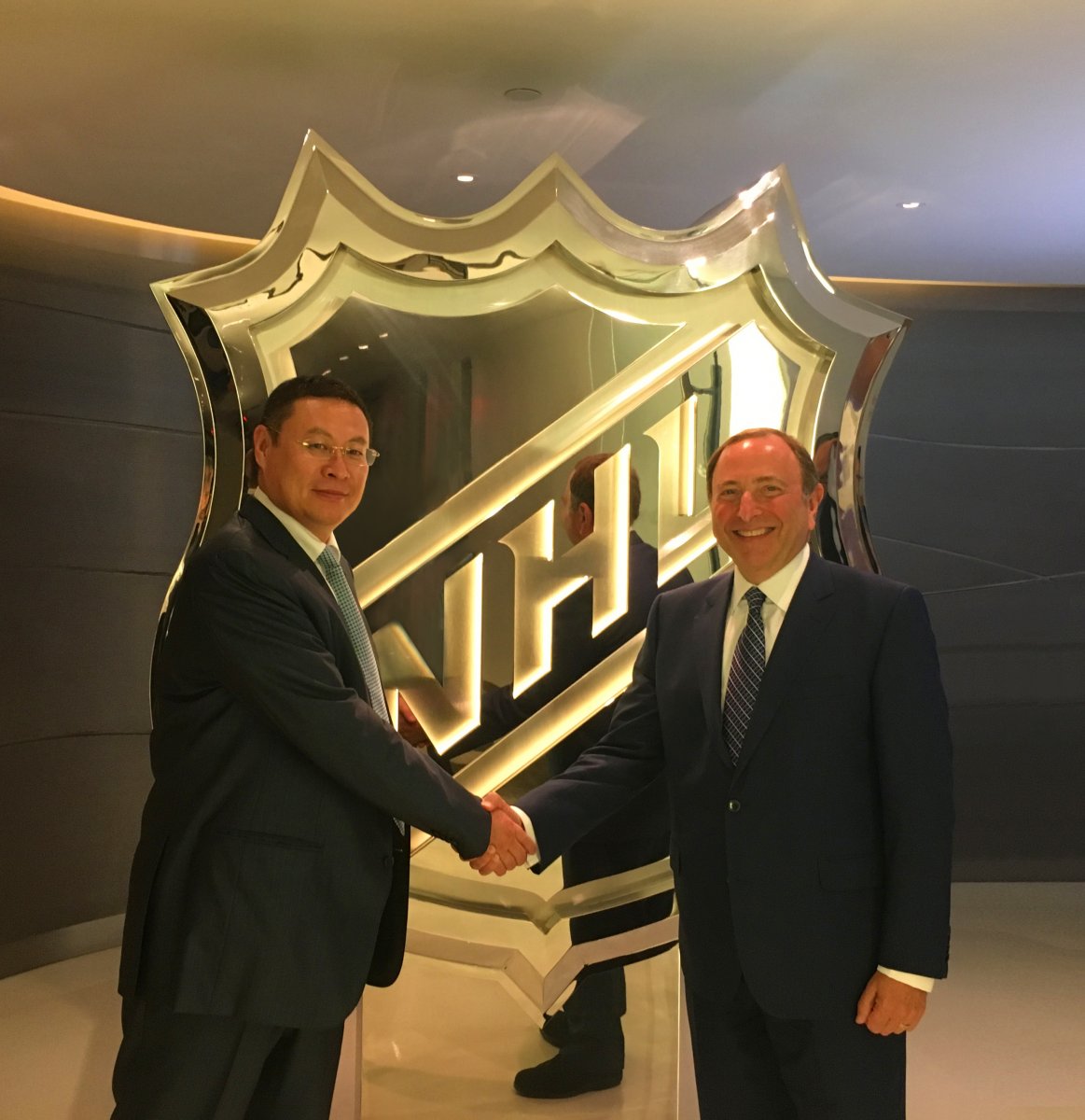
NHL commissioner Gary Bettman came to Beijing in March to announce that the NHL was open to Chinese investment and to announce the exhibition games in Beijing and Shanghai. How did it feel for you to watch him make that announcement?
It was great to see the NHL choose to come to China, it’s a wise decision for the league. I believe this decision will be a milestone for the development of hockey here, and it will bring about many more changes for the sport. And it will greatly benefit China as well.
How so?
Well, President Xi has placed much importance in winter sports. He envisions millions of Chinese enjoying time on the ice in the coming years. When he went to Canada and Finland for state visits as of late, he paid close attention to the hockey games. I think winter sports will develop here quickly, and have many benefits, similar to football and basketball in the past.
What specific benefits?
For one, it will be great for our students. Those who get involved will not only be studying hockey, but they will also they can apply to colleges in North America through hockey scholarships and programs. It will also help Chinese society, at large, to understand how sports and education supplement each other. That’s crucial, because there is too much focus on academics here.
How did you make that realization?
I was chosen by my school authorities, as a boy, to play on my school’s hockey team. I loved football at the time, and PE class in general, so my teachers encouraged me. It didn’t take long for me to fall in love with hockey. I’m already in my 50’s, and I can still feel how the game influenced my life. And I'm proud to say I can still play.
What are some examples of how it influenced you?
The most important inspiration that ice hockey gave me is the idea of fighting and being consistent. It gave me discipline.
On the flipside, how can the NHL benefit from its relationship with China?
This is a huge market for them that has yet to be developed. In the same way that the NBA had great success here, I believe there is plenty of potential for the NHL as well.
Also, it can deepen the communication between the Chinese and North America, give us more common ground and help us become closer. And if it can benefit China and North America, and that relationship deepens, that can be good for the whole world.
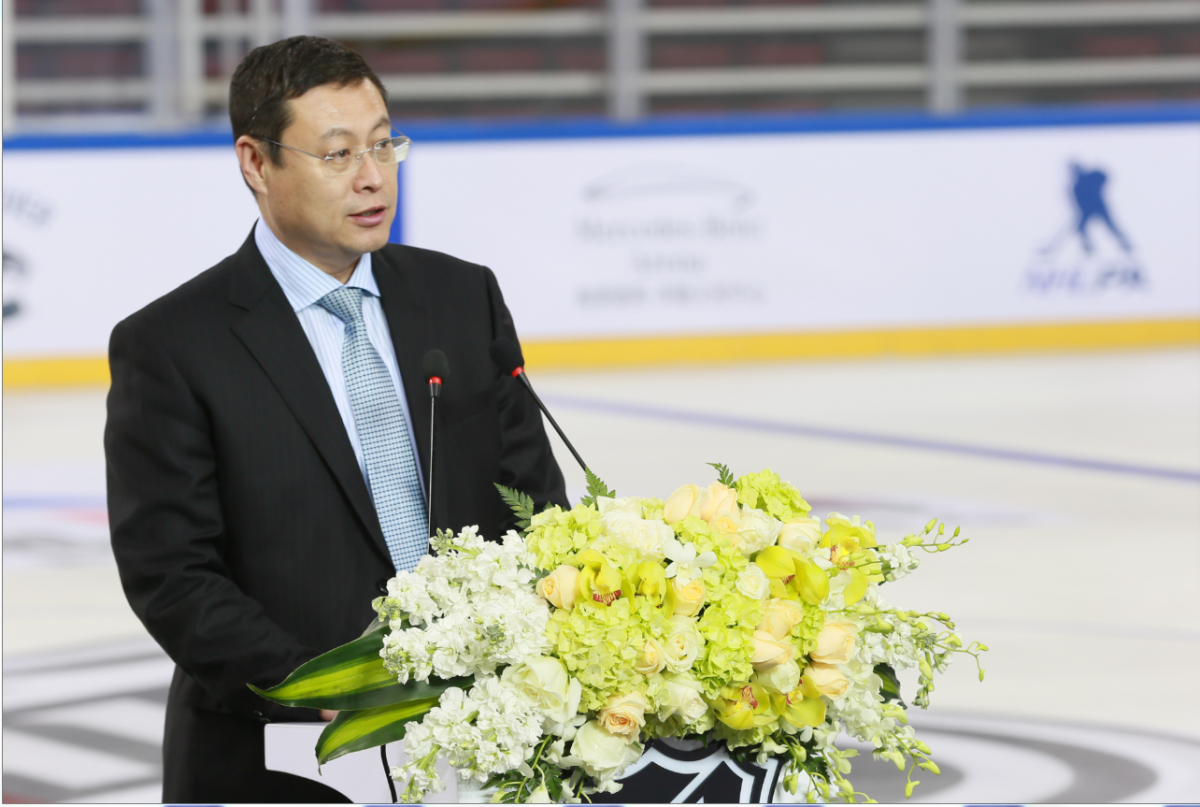
Although there’s plenty to be optimistic about, the NHL and the International Olympic Committee had a major falling out, and no players from the league will be at the Winter Olympics in South Korea, meaning the same could very well happen for the Beijing Games in 2022.
Yes, but I don’t think this poses major challenges to hockey’s overall potential in China. As long as we are all working toward the same goal of promoting the sport. So even though the NHL has announced their players won’t come, the situation is still excellent. After all, this is the first time the Winter Olympics will be held here in China! It’s a great opportunity for China, in that sense. Also, there is still plenty of time between now and 2022 to sort out details and make the situation as beneficial as possible for all involved.
Are you involved with such efforts to sort the situation out?
(Laughs) No, I don’t think that’s my problem. If necessary, if asked by Mr. Bettman or someone else in the NHL, I’d be happy to assist though.
Speaking of which, what was it like to meet Mr. Bettman and to work with him to bring the NHL to China?
I felt that Mr. Bettman’s team was very strict. They have very precise rules about everything, and manage everything very carefully. They have a very specific vision for hockey, and they hold closely to that.
They must have had their worries when my company approached them to begin work in the Chinese market, to bring hockey here. After all, we are a packaging company. But they began to understand the promise of ice hockey in China, we were able to convince them. It is through our constant communication, over years, that we were able to make this arrangement happen.
So I’m actually very happy, and I appreciate that Mr. Bettman and his team now look to China as a market with plenty of potential.
And yet hockey is much more expensive than basketball and football. There’s so much expensive gear for children to buy if they want to learn to play, and so on. Will that not impede its popularity in China?
Well, every sport has its specific challenges. You might say it’s costly, but I think that’s superficial. The gear and the rinks might seem costly, but we can’t look at only that.
The challenge isn’t so much that hockey is expensive, but that the economy in China is imbalanced. In the northeast regions, the infrastructure isn’t yet developed enough for the game. However, China’s economy has developed so much and, more importantly, investment in sports has changed here greatly as of late. Sports have caught more attention from the masses. In the past, most of that kind of investment came from the government, but more revenue is now coming from companies and society at large. I think that will influence youngsters more, and help direct them to not only study academics but also put more effort and resources into sports. I think people will make that more and more of a priority, because it can help keep kids on track and away from bad habits or harmful pursuits.

A moment ago you told us about meeting Mr. Bettman. I also wanted to ask you about meeting your hero, Bobby Orr.
He’s my role model. I admire him a lot. Although he had a short career, I think he’s the epitome of hockey’s spirit. He conveys dedication, responsibility, and he was willing to fight and remain determined. I remember reading about how he was injured and continued to play and win the championship. So I want Chinese children to learn from him and be inspired by him.
I first met him last year. He’s not as tall as I imagined! When we were together, I didn’t feel like he was a superstar. More like a neighbor or old friend.
So I hope the NHL can bring more star players here to China, for hockey camps and events. That way children can meet them and learn from them and be inspired by them. It’s my dream that every Chinese university has a hockey team, and can one day compete against teams in North America.
Photos: Courtesy of Zhou Yunjie



